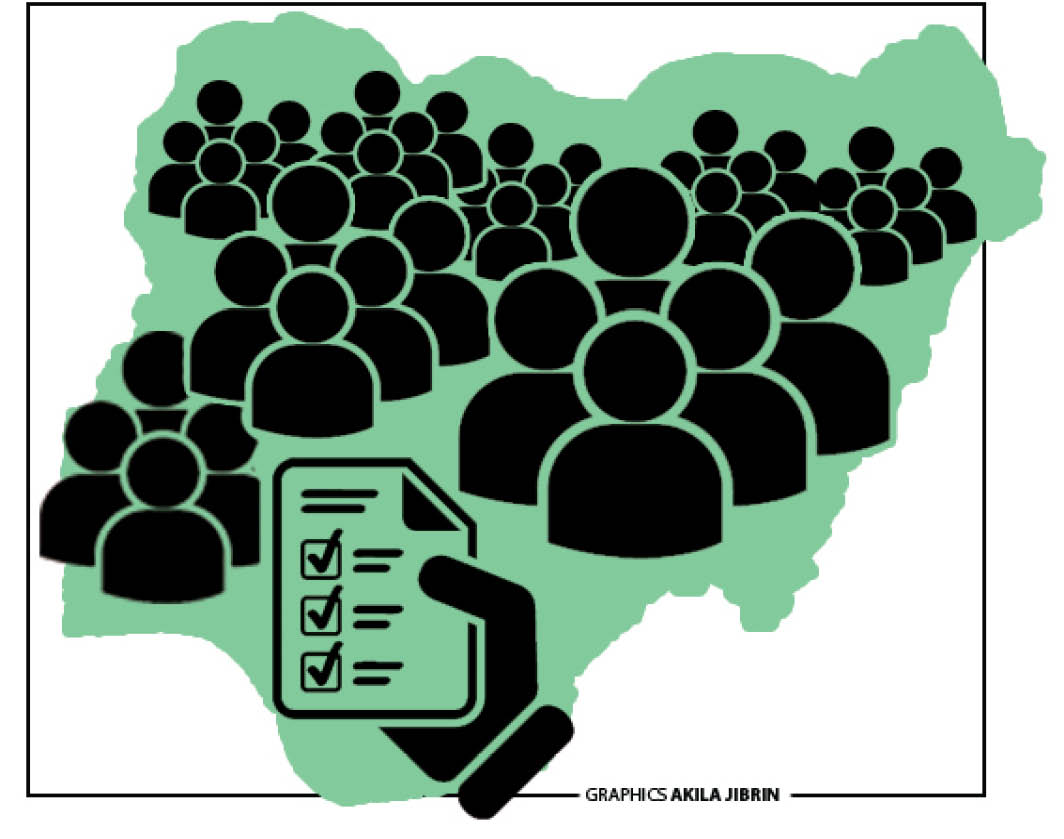There are fears, widely expressed, that the national census due to be held next year might prove to be an unrealistic and unworkable venture. Many of us only became fully aware that a census was coming up next year when we noticed the humongous amount of N178 billion approved in the 2022 budget for the National Population Commission (NPC). It once more set tongues wagging.
True, if we had followed the convention of the ten-year gap between censuses, we would have had one in 2016. But the tardiness in our planning processes made it impossible with the usual excuse of not having sufficient funds for the exercise. In any case, we have never followed the conventions because most of our censuses always came along with sufficient acrimonies, across the national divides, to last us some years to live down, before contemplating another one.
Nobody can discount the primacy of an accurate census to national development planning. It is imperative for planning social and economic deliverance to the people. However, in this country, since census figures have been the basis for the distribution of political representation and allocation of resources, there has always been a tendency to view the figures with suspicion, especially by groups that scored less. Nevertheless, we have held censuses, particularly in those years just before and immediately after independence.
I recall being part of the 1963 census though I was too young for the exercise. There weren’t many who were literate in Maiduguri then, and even though I was in Junior Primary School and was just warming up for my teenage years, I was co-opted as an enumerator. I was in the group posted to Dala, now a suburb of Maiduguri but then was a village about seven miles away, which was quite a distance. We were to spend a considerable period but to my chagrin, I found that the villagers ate only one meal a day. It was too much for a city boy, used to three meals a day, to endure. After a few days, I walked back home. I returned to Dala only when I was fully stocked with foodstuff.
Nonetheless, the 1963 census was one of the most successful the country ever had, and it became the benchmark for many more years, despite bickering over the figures. Trying to keep to the ten-year gap the government held another census in 1973 but there was so much recrimination that it had to be cancelled in its entirety.
It was not till 1991 we had another census. Somehow the figures that emanated from this census were less controversial perhaps because it was said to have used the most scientific approach then. But the 2006 census saw a return to the squabbles of the past, maybe because the country was back into the political dispensations after years of military rule. Bola Tinubu, governor of Lagos State even went to court to challenge the census figures and particularly why Kano State’s population was higher.
The stage is now set for another census. The enumeration area demarcation exercise is almost ready, the selection and training of enumeration staff are almost completed and most importantly money has been provided in the 2022 budget. What is being awaited is just the Presidential Proclamation to be conveyed to NPC to kick-start the exercise. But we need to pause to ponder how the NPC hopes to conduct a census in the situation we have found ourselves in today. We live in very fractious times, under various forms of insurrections affecting many parts of the country, which could impinge on the quality of the exercise.
Many parts of the North East have been devastated by the Boko Haram insurgents sending many of the citizens to IDP camps and leaving devastated houses behind. The census exercise would be to count persons as well as dwellings and I wonder how that can be achieved with over a million away in IDP accommodations. Borno State, whose landscape is one of the most expansive in the country, is the worst affected in the country. Many parts of the state are empty of citizens. Most citizens of northern Borno are today probably accommodated in IDP camps in Maiduguri and surrounding settlements.
In many states of the North West, bandits are having a field day. Several villages in Sokoto, Zamfara, Katsina, and Kaduna States have been emptied by bandits that are rampaging with impunity. The roads adjoining towns and villages have been made impassable by the bandits. To contain them, the government has downed communication gadgets which are also affecting other normal transactions as such I foresee difficulties in conducting a census in such circumstances.
In the South East, the Indigenous People of Biafra (IPOB) militants have many times shown that they had the muscle to shut down the five states on any day. Today, it is taking massive deployment of troops to run the gubernatorial election in Anambra State coming up this weekend and one wonders if we have the number of troops to cover the entire five states for the census.
But that’s not all. 2022 is the pre-election year for the entire country. Trust our political leaders – most attention will be focused on the elections with little care left for the census.
From my perspective next year would be inopportune for the census. Leave it for the next president.

 Join Daily Trust WhatsApp Community For Quick Access To News and Happenings Around You.
Join Daily Trust WhatsApp Community For Quick Access To News and Happenings Around You.


